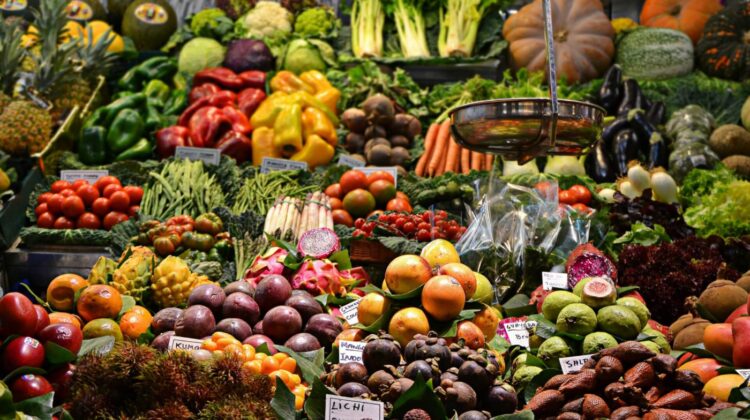
India’s agri exports recorded growth even amidst the blow of the pandemic: APEDA Chairman
Despite the hurdles posed by the Covid-19 pandemic across the globe, India’s agricultural and processed food exports have braved the odds by recording a significant rise as per the data available for the first 10 months of FY21, shared Dr M Angamuthu, Chairman of the Agricultural and Processed Food Products Export Development Authority (APEDA).
Dr Angamuthu talked about the factors behind the growth of exports and how stakeholder efforts and coordination have played a significant role in the growth.
Factors behind the growth in agri exports
Dr Angamuthu believed that efforts taken by stakeholders in the agri supply chain in the past decade have led to the rise in exports.
“Efforts made by the concerned stakeholders in the agri-supply chain in the last decade have resulted in increase of exports from $7,343.98 million in April 2009-10 to $16,133.28 million in 2019-20. In the first 10 months of the current fiscal, we achieved exports worth $15,566 million—an increase of over 20% compared to same period in 2019-20.”
~Dr M Angamuthu, Chairman of the Agricultural and Processed Food Products Export Development Authority (APEDA)
In rupee terms, the agri-export realisation was INR 1,157,82 crore during April-January 2020-21—more than 25% compared to the previous fiscal.
Dr M Angamuthu attributed this rise to efforts made towards strengthening backward linkage, setting up of post-harvest infrastructure, strengthening of logistics infrastructure, and market promotion efforts for taking the agri-produce to global markets.
Rise in exports amid challenges in shipping commodities
Even amid challenges that had arisen during the pandemic, several measures were taken to overcome the odds.
“We took several measures in terms of ensuring safety and hygiene due to operational and health challenges posed by Covid-19. Especially the non-basmati rice and wheat exports during the first 10 months of current fiscal grew by 125% & 533%, respectively, compared to same period in the previous fiscal”, he shared.
Dr Angamuthu alluded to the Agriculture Export Policy announced by the government in 2018 with the objectives of increasing exports, diversification of the export basket and destinations, and encouraging high-value and value-added agricultural produce with a focus on perishables.
While talking about the focus on providing stable trade policy regime, development of infrastructure including logistics infrastructure, involvement of state governments, and setting up of institutional mechanisms at the state level to support exports, he mentioned how the APEDA had taken many initiatives that have yielded results in deputation of state nodal agencies and nodal officers for 28 states.
“State-level monitoring committees have been set up in 22 states”, he shared.
He also added that the state governments have been facilitated for preparation of state agri-export plans, and these have been finalised by 16 states.
“A country-specific agri-export strategy has been prepared for 60 countries”, he stated.
Collaborations for Boosting Exports
On collaborations with agencies to boost export prospects, he shared that the APEDA had signed MoUs with the NABARD, National Cooperative Development Corporation, National Cooperative Union of India Small Farmers’ Agribusiness Consortium, and Tribal Cooperative Marketing Development Federation of India, for the creation of farmer producer organisations, farmer producer companies, farmer cooperatives and self-help groups for enabling export-oriented production.
“Efforts have also been made for having a synergy with the concerned line ministries and organisations that provide the fund support for developmental activities for strengthening supply chain of agri exports.
In addition, during Covid-19, for proving a platform to importers and exporters, virtual trade fair software has been developed and is being implemented. Export promotion forums have been set up for nine commodities (grapes, mango, pomegranate, banana, onion, rice and nutri cereals, dairy products and floriculture).
“Indian agri export faces barriers due to tariff disadvantages. In-house studies have been carried out and a report was prepared on tariff disadvantages with importing countries, which will help in addressing this concern”, he said.
Among commodities that witnessed exports surge, Basmati and non-basmati rice, buffalo meat, groundnuts, miscellaneous preparations, cereal preparations, guar gum, processed fruits, juices and nuts, processed vegetables, fresh grapes, fresh vegetables and others are the commodities that recorded major growth in exports.
Implementation of a traceability system
A traceability system was initiated for identified potential products with respect to traces in pesticides, etc long ago, in keeping with the adherence to food safety and traceability requirements of importing countries, Dr Angamuthu shared.
“The first traceability system for grapes (grape.net) was made in 2006-07 for export of grapes to the EU market. After its success, it was replicated to other products. Till now, the traceability system has been implemented for export of basmati rice (basmatirice.net), meat products (meat.net), peanuts (peanut.net) and organic products (trace.net)”, he stated.
He also added that the traceability system for potential fruits and vegetables (horti.net) is under implementation. Traceability systems for poultry, honey, banana and GI products have also been initiated.
Augmentation of APEDA’s laboratories
While talking about APEDA’s facilities, he shared that the work of APEDA-recognised laboratories has been updated to 200 labs, which facilitates testing of sample products as per the requirement of importing countries. For further expansion, the APEDA has approached all state agricultural laboratories to go ahead with NABL recognition and get recognised by the APEDA for export testing, he shared.

